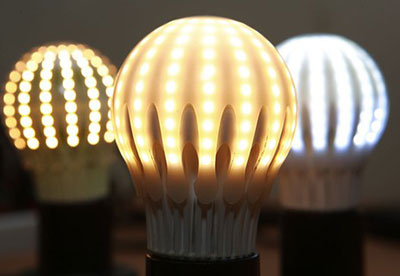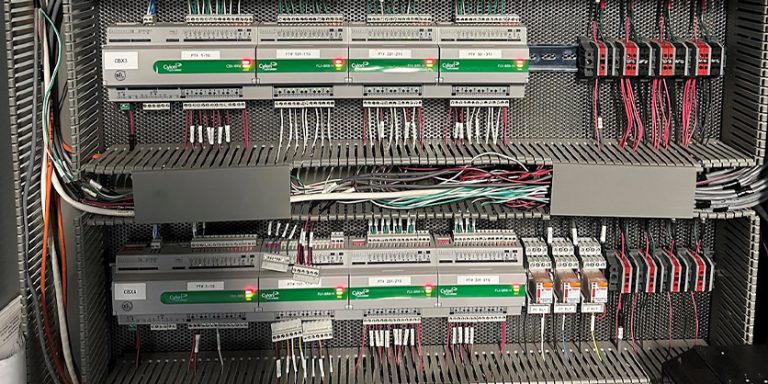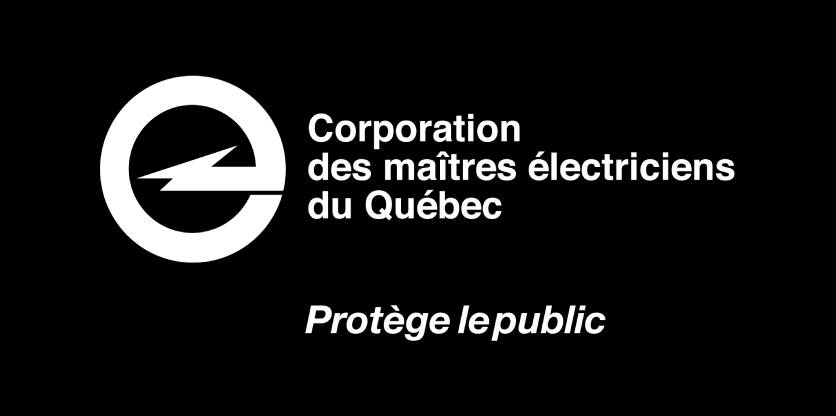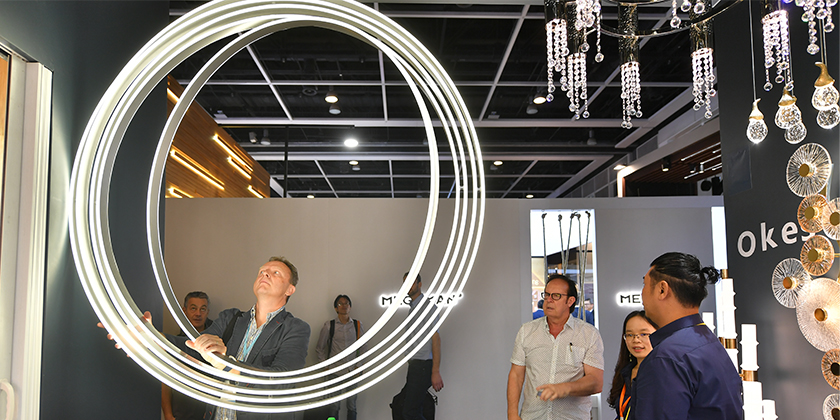Conception d’un éclairage efficace – Étude de cas

La modernisation de son éclairage a mis l’Université de Nottingham sur la voie d’un éclairage plus brillant.
L’Université de Nottingham est une université de réputation internationale évaluée parmi les 30 meilleures en Europe et dans le top un pour cent au niveau mondial. L’université compte 4 campus en Grande-Bretagne et en comptant ceux de Malaisie et de Chine, plus de 43 000 étudiants fréquentent cette institution.
Développer et gérer l’environnement de l’université de façon à respecter les principes du développement durable est au cœur des valeurs de l’institution.
En septembre 2014, l’Université de Nottingham a complété avec succès son projet de remplacer son système d’éclairage extérieur avec lampes à vapeur de sodium à basse pression par un éclairage DEL. Le projet de modernisation a été réalisé par une firme spécialisée dans la modernisation des systèmes d’éclairage et ainsi, plusieurs composants de l’ancien système ont pu être préservés.
Les buts poursuivis par cette modernisation étaient d’avoir un système d’éclairage DEL qui participerait à la réduction des coûts énergétiques et ceux d’entretien. On voulait également améliorer la sécurité des piétons par un éclairage mieux conçu pour les différents sentiers et autres voies circulables sans sacrifier l’esthétisme des lieux. On s’est assuré aussi d’avoir accès aux futurs produits DEL qui seront développés et servir d’exemple aux autres projets de modernisation d’éclairage à venir sur les campus de l’université.
The University of Nottingham is a world-class university ranked in the UK and European top 30 and features in the top one per cent of all universities worldwide. It has four UK campuses in and around Nottingham that together with those in Malaysia and China host in excess of 43,000 students.
Developing and managing the university’s environment is at the heart of its values, ensuring that the student experience and environmental sustainability remains firmly on the university’s agenda.
In September 2014, The University of Nottingham successfully completed an initial project to replace exterior low pressure sodium (LPS) campus lighting with the very latest retrofit LED lamps. These were manufactured and supplied by Light Efficient Design, the US-based world leader in retrofit LED HID lamping technology. The installation was carried out at the main 300-acre University Park Campus in Nottingham and enabled the existing lighting columns, heads, holders and fittings to be reused thanks to Light Efficient Design’s unique retrofit design.
The University Park Campus LED retrofit re-lamping project was initiated and managed by the on-site Estates and Environmental Team. This was in the face of rising energy costs and with lighting accounting for approximately 20% of the university’s total annual UK energy bill, as well as a target to reduce overall carbon emissions by 40% come 2020.
Project goals
• Initiate an affordable and measurable LED lighting program that reduces energy and maintenance costs
• Enhance Campus pathways, driveways and roadways with clear white distributed light for improved pedestrian safety – without detriment to campus aesthetics
• Ensure affordable access to future LED product developments
• Serve as an exemplar for future University of Nottingham campus re-lamping initiatives
Key challenges
Part of the University since 1929, the University Park Campus is widely regarded as one of the largest and most attractive in the country and has been a Civic Trust Green Flag Award Winner every year since 2003 – the only university campus to achieve this status.
Therefore, converting to modern high quality Light Efficient Design LEDs to replace the incumbent yellowy orange LPS lighting had to be achieved non-invasively, with minimum disruption to day-to-day campus life, and in keeping with the surrounding environment and buildings architecture.
In addition, maintenance budget constraints meant that ease of LED product installation and ongoing reliability was a prerequisite in the interests of optimising labour and servicing costs.
Evaluation process
In autumn 2013, the Estates and Environmental Team was invited by Light Efficient Design to evaluate its innovative LED lamping solutions, purpose-designed for quick and easy replacement of old-style metal halide (HID) and sodium technologies. Already well aware of the energy saving benefits of LED lighting technology, the Team quickly identified the retrofit approach offered the flexibility to phase-in Light Efficient Design’s lamping and therefore avoid the significant capital expenditure traditionally required. At the same time it would significantly reduce the risk of premature product obsolescence often caused by the fast pace of LED technological development. Hitherto, these two factors had been the university’s largest obstacles to switching to LED from LPS.
Following an initial two-week trial of four Light Efficient Design retrofit LED sample units, it was decided to lamp a small stretch of roadway comprising 14 lamps. This was completed in January 2014, and just two months later the decision was made to invest in a campus-wide LED lighting roll out to include pathways, driveways and roadways.
Explained Richard Clayton, Electrical Engineer for The University of Nottingham, Estates Department: “We chose the Light Efficient Design retrofit LED solution as it ticked all the boxes. At around a third of the cost of traditional non-retrofit LED lamp post lighting, we recognised their retrofit lamps to be considerably more affordable as they do not require replacement of the existing lamp columns or heads. The quick and easy installation also enabled labour savings through greater productivity.”
The solution
Approximately 1000 retrofit LED units were ordered for re-lamping the external areas of the University Park Campus – comprising around 750 lamp tops – while leaving sufficient quantities for potential requirements elsewhere. Local contractor, Manor Maintenance, was chosen to manage the installation following the Estates Team’s tender request. The re-lamping was carried out between June and September 2014.
For the campus driveways, pathways and roadways, Light Efficient Design specified its 8023 35 circuit watt LED retrofit lamps which, compared to the incumbent 58 circuit watt LPS offering, provide a 40% energy saving. Following quick and easy bypassing and disablement of the existing HID ballasts and control gear, the simplicity of the retrofit lamp design allowed the installer to reuse the lamp fittings and fixtures, enabling each post to be retro-fitted in around 15 minutes.
A number of 8028 20-watt bollard and wall pack solutions were also supplied for replacing existing 70-watt metal halide lamps.
Benefits
• 40% energy and carbon savings
• Clear bright white light for added pedestrian safety
• Cost-effective with no disruption to existing lamp assets (lamp columns, heads, fittings)
• Enables re-lamping on a phased basis
• Fast installation for increased productivity and reduced labour costs
• No maintenance over 5 year/50,000 hours lamp life
• Enables easy upgrade path to future retrofit LED solutions
Future plans
The success of the initial University Park Campus installation has already resulted in The University of Nottingham planning to extend retrofit lamping to its nearby Sutton Bonnington Campus. This will entail the installation of approximately 250 Light Efficient Design retrofit LED lamps. Discussions are also underway for a similar project at the university’s Jubilee Campus.
Concluded Gavin Scott, the University of Nottingham’s Environment Manager, “We are confident the LED solution is already providing a sustainable solution which will help us in our mission to drive down our energy costs and carbon emissions. The lamps are also greatly enhancing the quality of light for improved student, staff and visitor safety and their simple, unobtrusive, design and installation ensures the overall look and feel of our Campus environment is preserved.”
Jon Fredrikson, Director of Marketing for Light Efficient Design, has nearly 10 years of experience in the electrical and lighting industry. Prior to joining Light Efficient Design, Jon held a variety of marketing and national sales positions at Intermatic, Inc.










